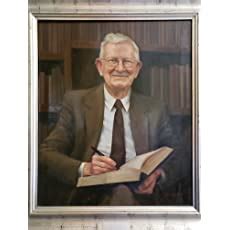A Quote by Sean Strub
In the '80s and '90s, there was some degree of compassion for people with HIV because there was visible human suffering.
Quote Topics
Related Quotes
I think most people who decide to become a musician have to be prepared for some degree of struggle. It makes the art better if you go through some struggles. To be an artist, in any form, you have to develop some sense of compassion and empathy - it's an important quality for everyone to have, on a human level. But I think, as part of our job, you have to be able to do that, so suffering, tends - if you allow it - to let you look on the bright side. It will help with those senses.
You can't work at a relationship; you can't control it. You have to be lucky and go through your life. If you are not lucky you have to be prepared for some degree of suffering. That's why most relationships are very difficult and have some degree of pain. People stay together because of inertia, they don't have the energy. Because they are frightened of being lonely, or they have children.
If we take the time to look deeply, we see that understanding and compassion arise from suffering. Understanding is the understanding of suffering, and compassion is the kind of energy that can transform suffering. If suffering is not there, we have no means to cultivate our understanding and our compassion. This is something quite simple to see
Many young people are not having safe sex because they think medicines will make everything okay. The thing about these medicines is that you often have to take them your whole life. They can be very aggressive chemicals for your body. Just because you don't hear of as many people around you dying from HIV/AIDS - just like how it was in the '80s and '90s - you can still die. I'd say to someone who's very young to protect themselves and protect their lives. There's nothing safer than not catching this virus. It's having something that never goes out of your system.
The essence of love and compassion is understanding, the ability to recognize the physical, material, and psychological suffering of others, to put ourselves "inside the skin" of the other. We "go inside" their body, feelings, and mental formations, and witness for ourselves their suffering. Shallow observation as an outsider is not enough to see their suffering. We must become one with the subject of our observation. When we are in contact with another's suffering, a feeling of compassion is born in us. Compassion means, literally, "to suffer with."
I know for myself, every now and again on HBO, they'll show some of the young comedian specials from the '80s and early '90s, and it's just fascinating to watch those comedians - some of whom are people that are world-famous, like Chris Rock or Judd Apatow - to see the jokes that people had, but also, the way everything looked.
Our world can be moved Godward only by leaders who have shared to a deep degree the heartbreak as He looks in compassion and love on the world. Until you sense the suffering tears in the heart of God, until you share to some extent our Saviors suffering passion in Gethsemane, until you come close enough to God to enable the Spirit to yearn within you with His infinite and unutterable yearnings, you are not prepared to minister about the cross.
It's amazing to me how many people think that voting to have the government give poor people money is compassion. Helping poor and suffering people yourself is compassion. Voting for our government to use guns to give money to help poor and suffering people is immoral, self-righteous, bullying laziness.































